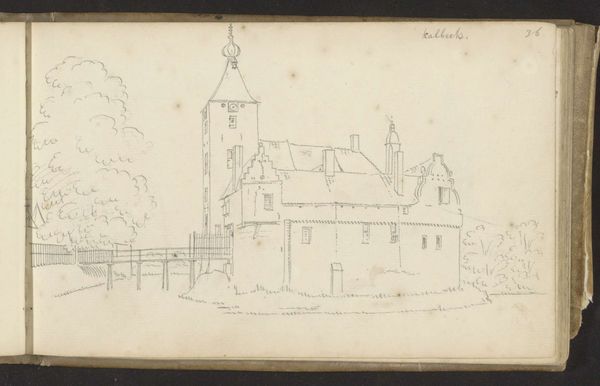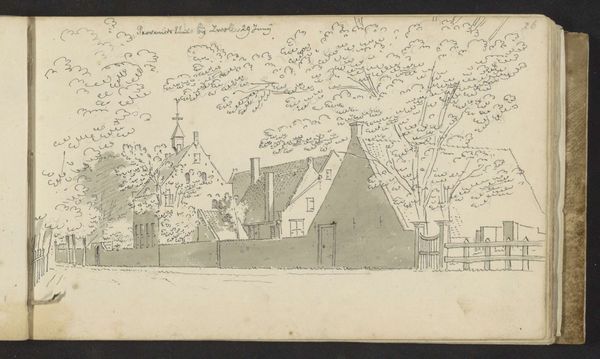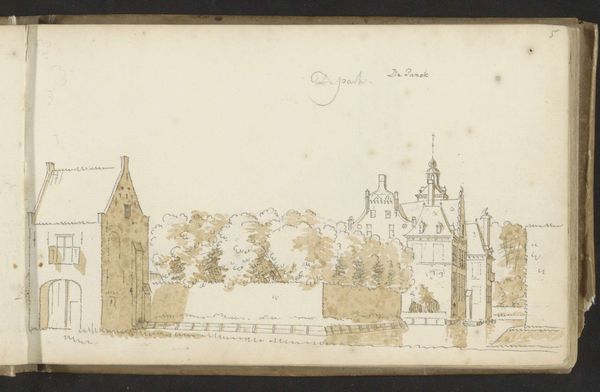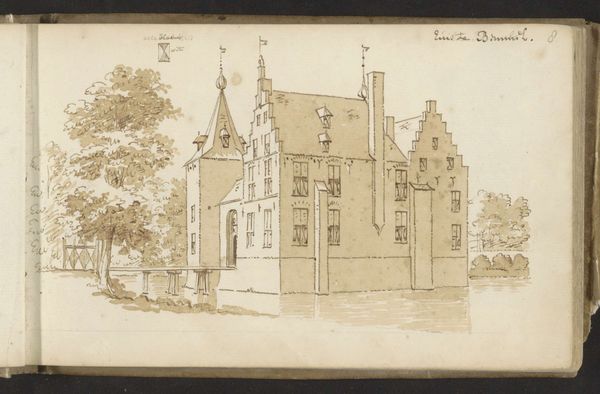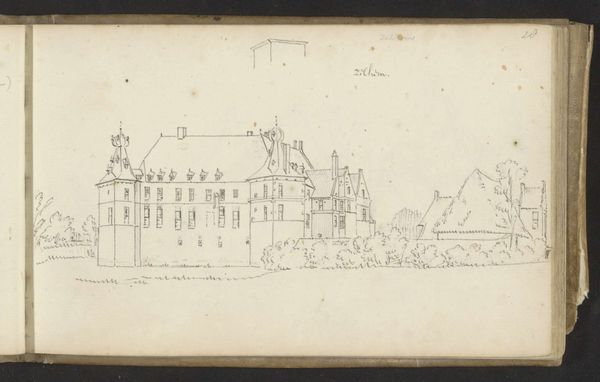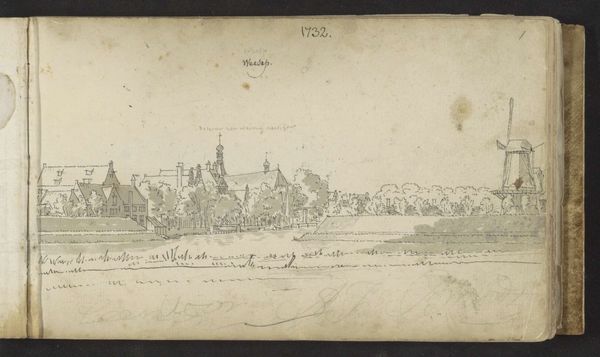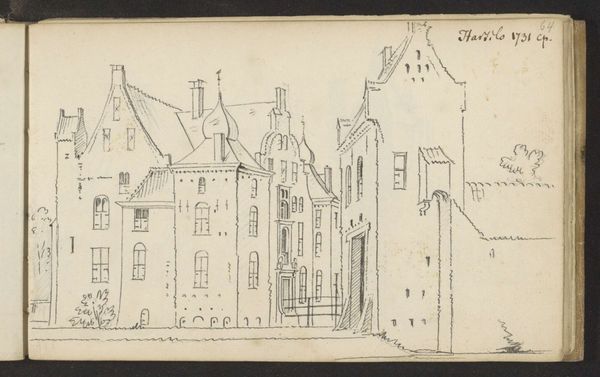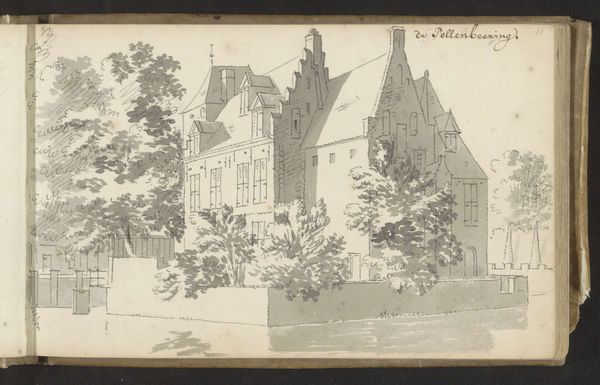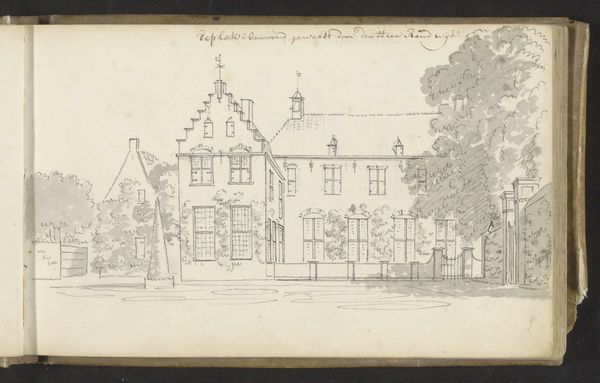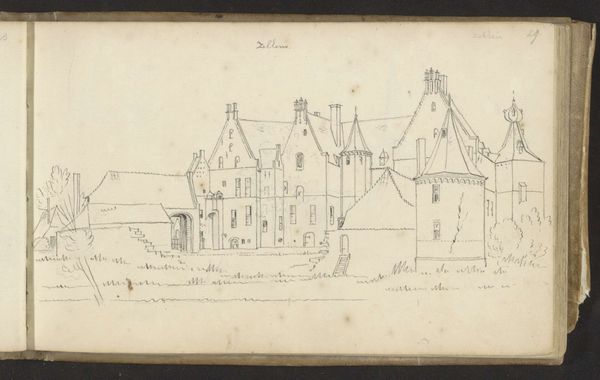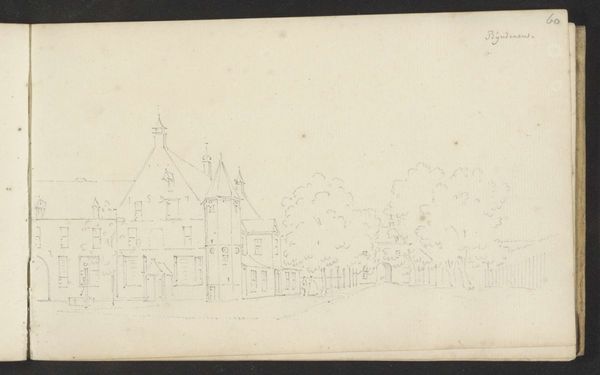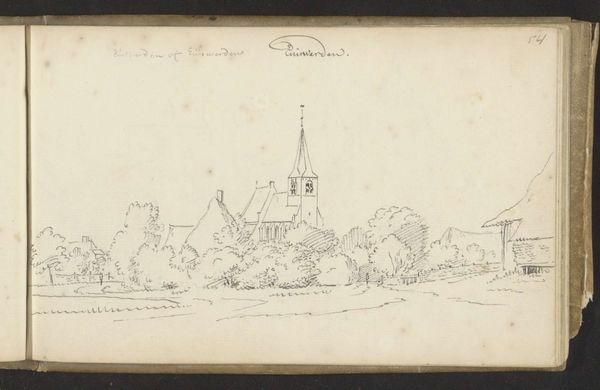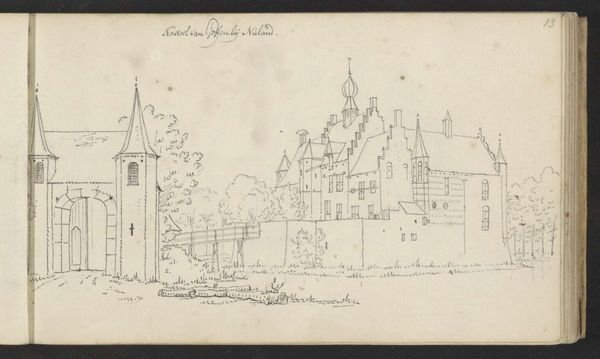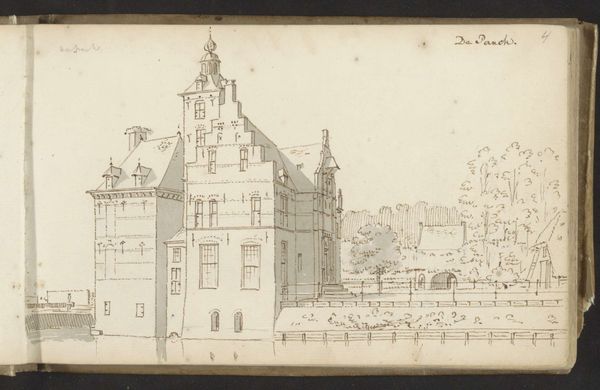
drawing, paper, ink
#
drawing
#
aged paper
#
baroque
#
pen sketch
#
sketch book
#
landscape
#
paper
#
personal sketchbook
#
ink
#
sketchwork
#
pen-ink sketch
#
pen work
#
sketchbook drawing
#
cityscape
#
storyboard and sketchbook work
#
sketchbook art
Copyright: Rijks Museum: Open Domain
Abraham de Haen the Second made this drawing of the Wittevrouwenpoort in Utrecht with pen in brown ink and grey wash. The use of humble materials like paper, pen, and ink underlines the work’s origin as a quick study, more about capturing the essence of the scene than creating a finished product. The swift lines and transparent washes are economical, showing us just enough detail to recognize the architecture and the landscape surrounding it. In eighteenth-century Holland, there was a vogue for topographical drawings and prints, which served as records of cities and towns, in effect, early postcards. It is precisely because of their lack of pretension that they can today give us such a direct connection to the past. De Haen's drawing might at first appear to be merely a documentary record, yet it's crucial to remember that choices about materials, tools, and techniques shape our understanding of the scene depicted. By valuing process and context, we enrich our understanding of both art and history.
Comments
No comments
Be the first to comment and join the conversation on the ultimate creative platform.
